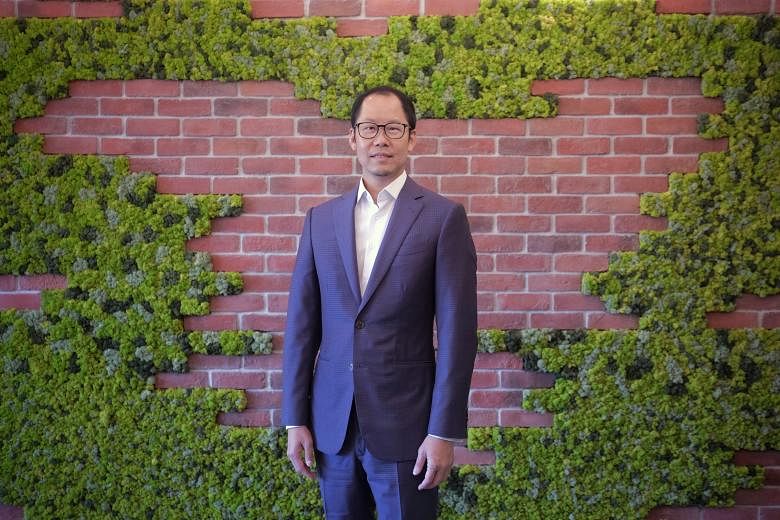SINGAPORE - Sustainability initiatives must have a real impact across the region and go beyond headline target figures, said UOB's new chief sustainability officer Eric Lim on Tuesday (May 11).
He added that going forward, the bank will push to shift the region's focus to renewable sources such as solar energy.
Mr Lim, who is also head of group finance, was appointed as the bank's first dedicated chief sustainability officer last month.
He said: "Sustainability has gone mainstream. It is no longer a reversible trend," noting that governments have been rolling out sustainable development plans as part of their commitment after signing the Paris Agreement.
Asset managers are also hardening their stance on sustainability, giving funds to greener firms and even pulling back investments from others. Customers also want products that are sustainable such as green loans.
To meet these new demands, UOB initially aimed to build a sustainable finance portfolio of $15 billion by 2023. With $12 billion of sustainable financing provided by this quarter, the bank can hit the target by the year's end or early next year, Mr Lim said.
He added that only about 5 per cent of UOB's loan portfolio is in companies that are considered not sustainable, such as coal-fired power plants.
The last coal-fired power plant that UOB signed on to finance was in 2017, he said. All the plants have tenders that expire within five years, meaning that UOB can exit its exposure to the plants by 2026.
But it still has exposure to thermal coal as countries in Asia depend heavily on coal for energy.
"We're working with the big coal anchors because they have diversification plans. They're moving away from thermal coal as a business model, or towards renewable energy," he said.
But sustainability should move beyond mere target figures, he stressed.
"We want to continue making sure our sustainable finance solutions reach the ground. And this is not only with the large firms, but also with small and medium-sized enterprises across the regional footprint."
Mr Lim added he will personally focus on pushing solar energy through the bank's U Solar programme, which helps home and business owners here and in the region switch their energy source.
"We want to bring the technology, right partners, financing. That kind of environment will (make an impact) on greenhouse gas emissions."
He said: "We're shifting the conversation to what is (making an) impact, beyond financial (performance). We're trying to move the language of sustainability away from simply numbers to looking at the impact on the environment and society, on low-income families, for instance."
The sustainable economy in South-east Asia alone presents opportunities of over US$1 trillion (S$1.33 trillion) annually, according to a report by Bain and Company last year. These are in areas such as renewable energy, urban farming, green tech and green buildings.
UOB has three sustainable finance frameworks - in smart city, real estate and the green circular economy - to align itself with these areas in which the region's green economy can grow.
There are also more chances now for retail investors to put their money into a good cause, Mr Lim said.
"The impact an individual makes is not comparable to a corporate. We need the economic model to change," he noted.
"But individuals can make an impact through sustainable investments and you can now make decent returns on sustainable funds."


